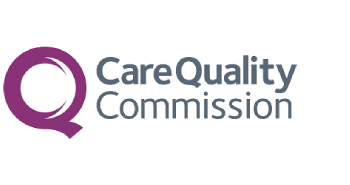Adult ADHD often goes undiagnosed in the UK, with symptoms like difficulty concentrating, chronic disorganisation, and impulsivity affecting work and relationships. If these patterns sound familiar and impact your daily life, a professional assessment can help you access proper support.
Many adults live with ADHD without knowing it. Unlike children, adult ADHD symptoms can be subtle and easily mistaken for stress, personality traits, or other mental health conditions. If you’ve always felt different or struggled with focus, organisation, or impulsivity, it might be worth exploring whether ADHD could be the reason.
What Does Adult ADHD Actually Look Like?
Adult ADHD isn’t just about being hyperactive or unable to sit still. The symptoms often show up as persistent patterns that affect work, relationships, and daily life. According to the DSM-5 diagnostic criteria (the official manual used by clinicians), ADHD symptoms fall into three main categories. Here are the key signs of ADHD in women and men to watch for:
Attention and Focus Difficulties
Organisation and Time Management Issues
Hyperactivity and Restlessness
In adults, hyperactivity often looks different than in children. You might experience:
Hyperactivity and Restlessness
How Undiagnosed ADHD in Adults Affects Daily Life
These symptoms don’t exist in isolation. They create ripple effects across different areas of life:
It’s Not Your Fault
Your Struggles Were Real
All those times you felt overwhelmed by simple tasks, forgot important things despite trying hard to remember, or felt like everyone else had received an instruction manual for life that you missed – those experiences were valid. ADHD explains why certain things that seem easy for others have always felt impossibly difficult for you.
You’ve Been Managing More Than You Realised
Getting through life with undiagnosed ADHD requires incredible resilience and creativity. The fact that you’ve made it this far, built relationships, held jobs, or raised children while managing ADHD symptoms without support shows remarkable strength.
How ADHD Might Have Affected Your Life
Understanding how ADHD has influenced your experiences can help make sense of patterns you’ve noticed over the years.
| Area of Life | How ADHD Can Affect You |
|---|---|
| Work | Missing deadlines, struggling with detailed tasks, difficulty prioritising, or frequent job changes |
| Relationships | Partners might feel ignored or unheard, friends might see you as unreliable, or you might struggle with emotional intimacy |
| Finances | Impulsive spending, forgetting to pay bills, or difficulty budgeting and planning ahead |
| Self-esteem | Years of being told you’re lazy, careless, or not trying hard enough can damage confidence and self-worth |
Why Adult ADHD Often Goes Undiagnosed in the UK
Many adults with ADHD develop coping strategies that mask their symptoms. You might use excessive planning, rely heavily on technology reminders, or choose careers that suit your ADHD traits without realising it.
Signs of ADHD in women are particularly likely to be missed during childhood because their symptoms often present as inattentiveness rather than hyperactivity. They might be labelled as daydreamers or anxious rather than having ADHD recognised. For a deeper look at this topic, read our guide on How Does ADHD Present in Women?.
Additionally, other conditions like anxiety, depression, or stress can overlap with ADHD symptoms, making diagnosis more complex. The NICE guidelines for ADHD (National Institute for Health and Care Excellence) recognise this complexity and recommend comprehensive assessment for adults.
The Difference Between ADHD and Everyday Struggles
Everyone forgets things sometimes or feels distracted. The key difference with ADHD is:
Getting a UK Adult ADHD Diagnosis: What to Do Next
If these symptoms sound familiar and are affecting your quality of life, consider speaking to a healthcare professional. A proper assessment can help determine whether ADHD might be behind your struggles.
At KPI:Access, our experienced neurodevelopmental specialists work with adults to fully understand their experiences and identify potential challenges. We offer fast appointments without requiring a GP referral, and we have an absolute no-exclusion policy.
Getting a proper assessment means you can access appropriate support, whether that’s medication, therapy, workplace adjustments, or simply understanding yourself better.
FAQs
Key Takeaways
Adult ADHD symptoms often look different from childhood presentations and can be easily overlooked. If you’ve always felt like you’re working harder than others to manage basic life tasks, or if these symptoms resonate with your experience, it’s worth exploring further.
Remember, ADHD isn’t a character flaw or a sign of laziness. It’s a neurodevelopmental condition that affects how your brain processes information and regulates attention. With proper understanding and support, many adults with ADHD go on to thrive in their personal and professional lives.
The first step is recognising the signs. The second is reaching out for professional assessment and support.
Ready to get answers?
If you’ve recognised yourself in these symptoms and they’re affecting your daily life, you don’t have to keep struggling alone. Getting clarity about whether you have ADHD can be the first step towards making life feel more manageable.
At KPI:Access, we understand that seeking an ADHD assessment as an adult can feel daunting. That’s why we’ve made it straightforward – no GP referral needed, appointments available within days, and our specialists have years of experience helping adults understand their ADHD symptoms.
Whether you’re 25 or 55, it’s never too late to get the support you deserve. Many of our patients tell us that finally understanding their brain has been genuinely life-changing.
Learn more about our adult ADHD assessments or get in touch if you have questions. You’ve already taken the first step by reading this far – why not take the next one?





